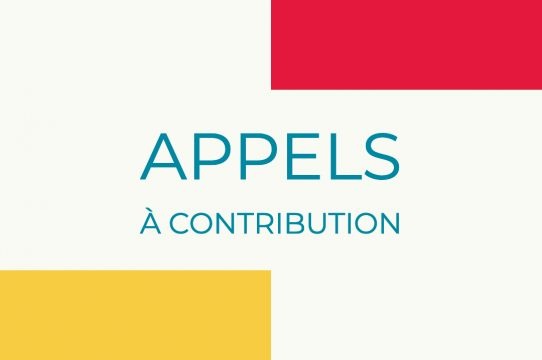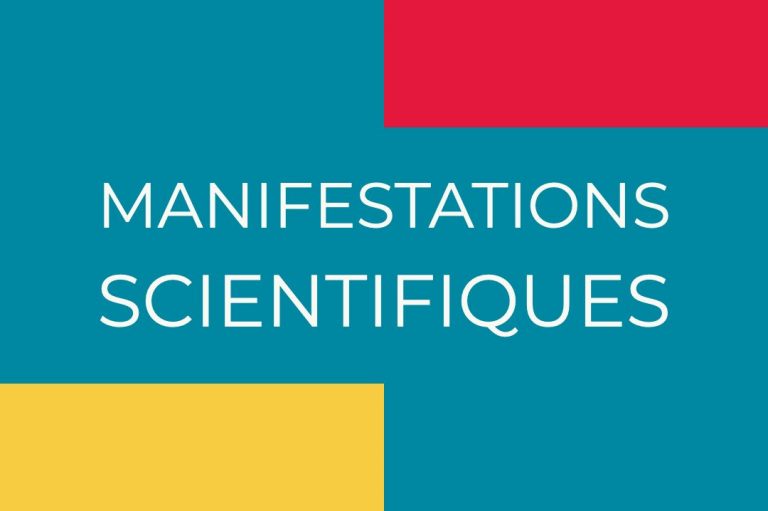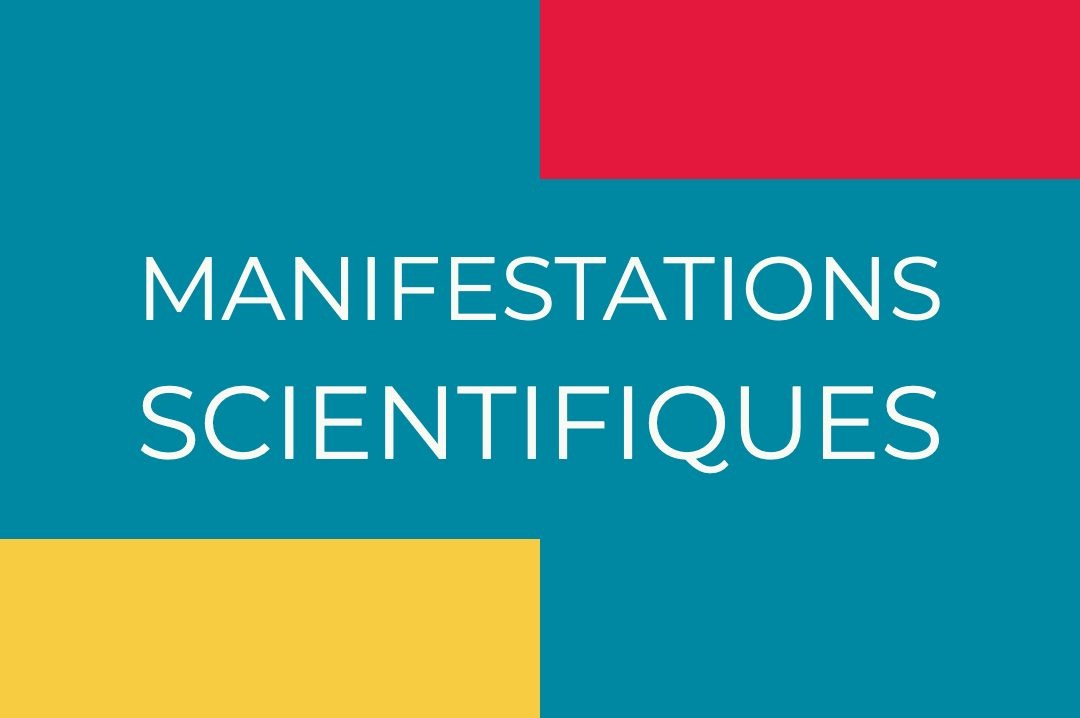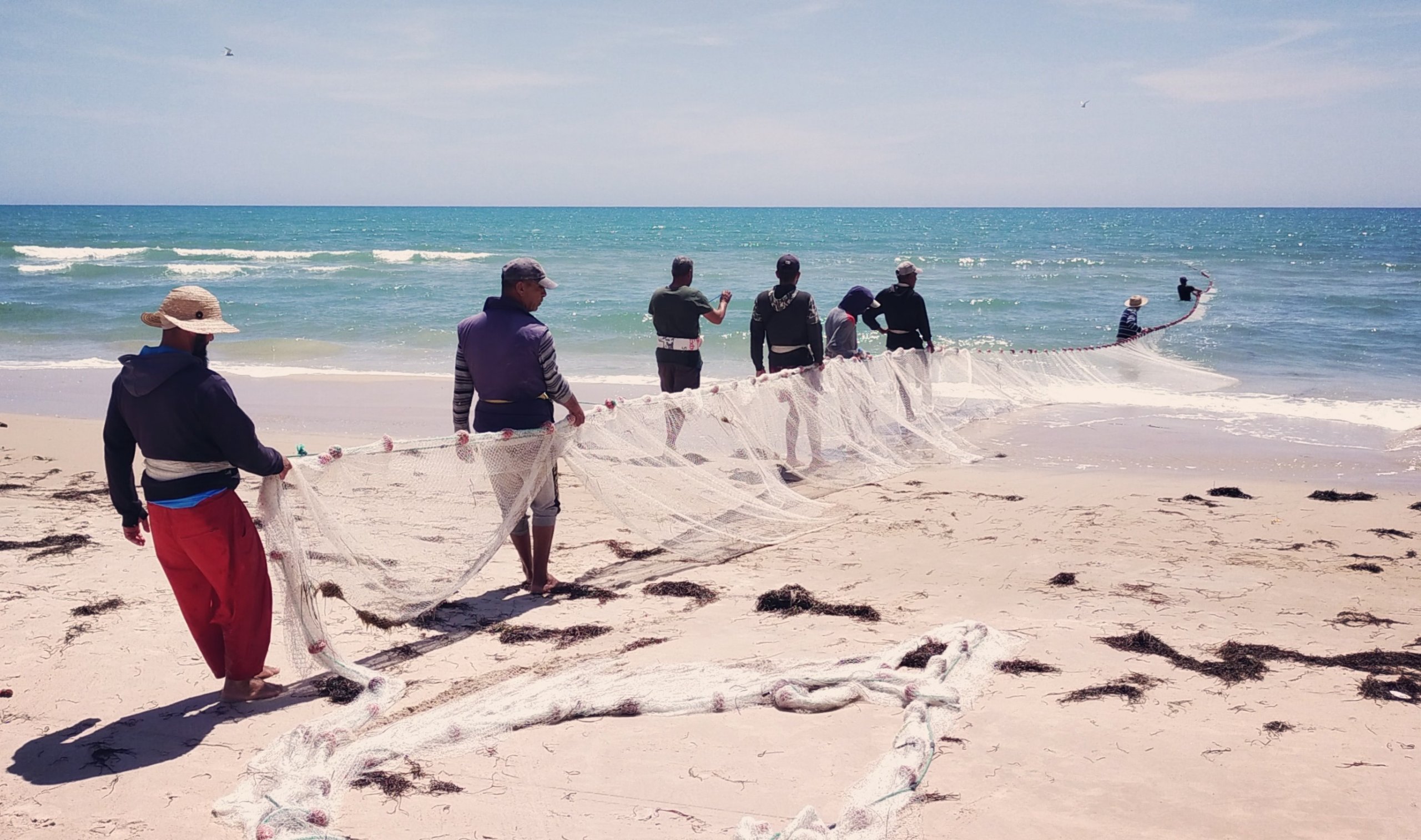AAC – La culture imprimée du cinéma. Ciné-feuilletons, ciné-romans, ciné-romans-photos et autres hybridations transmédiatiques (XXe-XXIe siècles)
La culture imprimée du cinéma.
Ciné-feuilletons, ciné-romans, ciné-romans-photos et autres hybridations transmédiatiques (XXe-XXIe siècles)
DATE LIMITE DE SOUMISSION : 15 AVRIL 2026
Colloque organisé par l’Unité de Recherche pluridisciplinaire Pléiade, avec le soutien de Médialect et de l’Institut universitaire de France, les 5 et 6 novembre 2026 à Paris/Aubervilliers
Argumentaire
Télécharger l’appel en version PDF ici.
Durant le premier tiers du XXe siècle, le septième art se constitue progressivement en industrie dans plusieurs pays. Au même moment, s’organise une promotion spécifique, qui s’appuie sur des objets dérivés du grand écran destinés à annoncer ou relayer l’image filmique et à remédier à sa fugacité. Dès les années 1910, se développent des imprimés très divers, au croisement de l’objet culturel et du support publicitaire : affiches de films, programmes de salles, brochures promotionnelles, suppléments de périodiques, presse spécialisée, cartes postales, etc. C’est dans cet ensemble médiatique et commercial que font leur apparition les « ciné-romans », également désignés comme « romans-cinémas », « ciné-feuilletons », « films racontés » ou « novellisations / novélisations[1] » – autant de termes identifiant cette pratique qui consiste à coucher le cinéma sur le papier. Ainsi, l’écrit accompagne l’essor d’un spectacle visuel qui s’adresse bientôt à un public de masse.
Ce processus témoigne de la mise en place d’une nouvelle culture transmédiatique, « quand émigre vers le livre [ou l’imprimé] un récit natif d’ailleurs[2] ». Elle privilégie très tôt un principe de diffusion modulaire, qu’il soit séquentiel (sous forme de séries) et/ou cumulatif (épousant la logique de collections) ; cela conditionne à la fois les formes narratives et les modes de circulation des œuvres. L’un des points de départ de ce phénomène réside dans l’émergence, en 1914, des serials américains, films à épisodes dont la segmentation s’impose en partie pour des raisons techniques, le cinéma devant alors se découper en chapitres suivant les longueurs des bobines. En France, les premiers films à épisodes apparaissent dès 1908 avec la série des Nick Carter de Victorin Jasset. Ce mode de diffusion cinématographique se renforce au contact d’une culture du feuilleton développée depuis la seconde moitié du XIXe siècle. Le premier cinéma se consolide ainsi en dialogue avec l’héritage populaire feuilletonesque, renouvelant à son tour la culture de l’imprimé[3].
Les hybridations entre l’écrit et l’écran ont donné lieu à une grande variété de productions médiatiques. Derrière la notion de ciné-roman se dissimule une multiplicité de formes : certaines se présentent comme des narrations, telles que le « roman » ou le « conte cinématographique[4] » ; d’autres se définissent en référence au théâtre ou à la poésie : « drames cinématographiques », « poèmes dans l’espace[5] », « scénarios poèmes[6] » ou « poèmes cinématographiques[7] ». La diversité des termes employés témoigne d’une conscience historique hétérogène du phénomène. Certains y voient surtout un mode de diffusion, voire un simple support, quand d’autres l’associent à un « genre littéraire nouveau[8] ». Ainsi, dans sa conférence du 26 décembre 1917[9], Guillaume Apollinaire avait appelé les poètes à « se préparer à cet art nouveau » qu’était le cinéma. La même année, le critique Louis Delluc avait également invité les écrivains à publier des scénarios à la manière des auteurs dramatiques[10].
Impliquant la photographie, le photogramme ou parfois le dessin[11], ces productions hybrides combinent texte et image dans des proportions variables. Lues en amont ou en aval de la projection filmique, elles se prêtent, selon les cas, à une consommation immédiate ou à une logique de collection destinée à accumuler les fascicules composant un récit filmique complet ou à constituer une bibliothèque personnelle de films racontés. Ainsi, l’engouement suscité par ces avatars a parfois été tout aussi important que celui qu’inspiraient les films qu’ils relayaient. Ils ont certainement dû ce succès à leurs éléments iconographiques. À bien des égards, c’est l’image qui a sauvé ces objets « jetables » du rebut et c’est elle qui, souvent, a fait le bonheur des collectionneurs. La dimension cumulative du phénomène a pu contribuer à la conservation et explique que les ciné-romans constituent parfois l’unique trace d’œuvres de celluloïd aujourd’hui perdues, ce qui leur confère une valeur patrimoniale.
Diverse sur les plans formel et terminologique, cette constellation des ciné-romans est aussi d’une ampleur considérable. Selon une estimation formulée par Maurice Dubourg en 1968, « [l]e roman cinéma, entre 1915 et 1939, aurait donné environ dix mille titres répartis dans trente à quarante collections différentes[12] ». Cette production se déploie à la fois dans la presse spécialisée, dans la presse quotidienne dotée de rubriques consacrées au septième art, dans des brochures offertes aux lecteurs-spectateurs et au sein de collections éditoriales spécifiques. En France, la distribution des films, fondée sur une synergie entre les salles de cinéma et les journaux quotidiens du groupe Sapène (Le Matin, Le Journal, L’Écho de Paris et Le Petit Parisien), est stimulée par la publication écrite des épisodes tournés à Joinville[13]. En Espagne, un phénomène comparable s’observe : dès les années 1910, les feuilletons de la revue El Cine anticipent les collections populaires de ciné-romans en proposant des versions écrites d’histoires issues de films à succès. Puis, dans le prolongement du feuilleton, de petits fascicules rappelant l’ancienne livraison[14] sont bientôt diffusés dans différents pays. Ces productions rencontrent souvent un vif succès. En Espagne, c’est particulièrement le cas des fascicules publiés par Francisco-Mario Bistagne, qui lance La Novela Semanal Cinematográfica (1922-1933) aux côtés de toute une kyrielle de collections apparentées[15], et des ciné-romans de Ramón Sala Verdaguer, qui publie, entre autres collections, la célèbre Biblioteca Films entre 1924 et 1936. Au total, une centaine de collections espagnoles ont été publiées des années 1920 aux années 1950, soit au moins 6 000 titres. En France, la presse spécialisée (Le Cinéma, Ciné-journal) et la presse magazine (Cinémagazine, Mon Ciné, Le Film complet, Ciné-Miroir) jouent également un rôle central, de même que les maisons d’édition qui proposent de nombreuses collections spécialisées, aux périodicités quotidiennes ou hebdomadaires : « Les Romans-cinémas » à La Renaissance du Livre (1916-1922), « Les Chefs-d’œuvre du cinéma » (1917-1923) et « Cinéma-Bibliothèque » (1921-1940, en plusieurs séries et sous-collections) chez Tallandier, « Les Grands Romans-Cinéma » (1921) chez Ferenczi, « Les films chez soi » (1922) de Fayard, « La Petite Illustration cinématographique » en 1925 lancée par L’Illustration, « Les Grands Romans filmés » chez Offenstadt en 1925, la « Collection du film » en 1926 chez Plon et « Le Cinéma romanesque » en 1928 chez Gallimard[16].
Cette phase d’expansion du ciné-roman se situe dans une chronologie longue et internationale. Ses origines se trouvent dans le sillage des formules du feuilleton, du fascicule et de la livraison, avant un développement plus important stimulé par la collaboration avec l’industrie cinématographique, notamment avec Pathé et Gaumont. Le phénomène s’inscrit surtout dans des dynamiques d’importation de modèles, en particulier en provenance des États-Unis, où le rôle des serials est déterminant. Mais c’est plus largement en Angleterre, en Espagne et en Italie que peuvent se saisir les mutations du ciné-roman, et ce jusqu’à des formes contemporaines, voire jusqu’au Street Art et à l’esthétique kitsch. Pour la France, on observe un essoufflement de la production à partir de 1933, suivi d’un regain notable après la Seconde Guerre mondiale. Blaise Cendrars édite avec Louis Delluc des scénarios de films dès les années 1920. Dans les années 1930, Marcel Pagnol lance la collection « Les Films qu’on peut lire » (1937-1938). Les années 1950-1960 voient l’émergence du « ciné-roman-photo[17] », sous l’impulsion d’éditeurs italiens relayés en France par des revues comme Mon Film ou Nous Deux. Se pose alors la question d’une résurgence du ciné-roman sous la forme du roman-photo, ou à l’inverse celle de la concurrence entre une forme en déclin et une formule nouvelle. Malgré ces fluctuations, l’objet continue d’exister sur les plans culturel et artistique. Dans les années 1960, certaines collections se spécialisent dans les novellisations de films, comme les « romans-choc » chez Seghers, principalement dédiés aux films de la Nouvelle Vague, ou « Les Grands succès de l’écran » chez Denoël. Par la suite, les détournements artistiques contemporains renouvellent les matériaux et les enjeux esthétiques du ciné-roman ou du roman-photo, comme en témoigne l’œuvre de Clémentine Mélois.
Ces évolutions historiques et géographiques appellent une réflexion poétique fine, comparative et située. Les avatars du ciné-roman interrogent en effet les affinités avec d’autres formes narratives et discursives, telles que l’album, le feuilleton, les écritures de presse, la rhétorique publicitaire et la critique. Ils mettent en tension la stratégie éditoriale et la réinvention du genre romanesque. Cela invite à une périodisation attentive aux chronologies de (re)publication, permettant de distinguer le récit devenu film, le récit adapté du film et les configurations intermédiaires. Avec Daniel Compère, on peut différencier le ciné-roman au sens strict, en tant que roman écrit d’après un film, et le ciné-roman au sens large, comme tout roman publié en lien avec un film[18]. Cette distinction peut recouvrir au moins trois cas de figure : la réédition d’un roman déjà publié ayant inspiré un film, le roman écrit comme scénario d’un film (dont le tournage n’a pas toujours eu lieu), le roman écrit d’après un film et publié à l’occasion de la sortie de ce dernier[19]. Selon les cas, la diffusion concomitante des dispositifs filmique et imprimé génère des effets de complémentarité, de redondance ou de réinterprétation. Cela a pu contribuer à insuffler du renouveau dans le roman-feuilleton qui se sclérosait, comme le notait le journaliste et critique de cinéma Lucien Boisyvon en 1921 : « Il ne faut pas dire que le roman-cinéma a tué le feuilleton, il s’en est au contraire fait un allié[20] ».
Les ciné-romans sont fortement tributaires des stratégies commerciales visant à combiner les modes de réception et à agréger les publics. Significativement, lorsque Le Matin fait la promotion du ciné-roman Les Mystères de New-York, publié dans ses pages du 27 novembre 1915 au 28 avril 1916 et adapté par Pierre Decourcelle du récit américain The Exploits of Elaine, il explicite en ces termes le succès rencontré : « Le roman-cinéma est la publication simultanée de la même œuvre en feuilleton et en film. Ce mode de publication, qui a été mis en pratique pour la première fois en Amérique, avec Les Mystères de New York, a eu un succès tellement considérable qu’il s’est traduit par 4 millions 500.000 lecteurs nouveaux[21]. » Le journal précise alors sa stratégie : « L’expérience faite en Amérique et en Angleterre a prouvé que les spectateurs qui voient le film pour la première fois veulent ensuite en lire les péripéties en feuilleton, où elles sont beaucoup plus détaillées que sur l’écran ; de même, ceux qui lisent le feuilleton éprouvent le plus vif intérêt à en revoir les différentes scènes illustrées par le cinéma[22]. » Il formule enfin cette prédiction triomphante : « Concluez : Vous lirez tous le feuilleton. Vous irez tous voir le film[23]. » Une telle complémentarité, particulièrement efficace à l’époque du cinéma muet, appelle l’analyse de ses évolutions médiatiques ultérieures et de ses ajustements culturels, politiques et esthétiques. Comme le note Étienne Garcin, « [d]e 1908 à 1928, date de l’avènement du parlant et du film long, le cinéma ne va pas cesser de puiser dans le fonds littéraire et d’utiliser le récit sous toutes ses formes à des fins promotionnelles, soit en lui demandant d’expliquer et d’annoncer une image encore muette, sous la forme du ciné-roman, soit en le reléguant à une fonction de ressassement du film une fois celui-ci passé, sous la forme du roman-cinéma[24] ».
Cette hybridation plurimédiale des poétiques concerne donc les temporalités de consommation, les modalités de coprésence du texte et de l’image, mais aussi les rapports entre romanesque et vraisemblance, la novellisation venant souvent expliciter ce que le film suggère. Le passage à l’écran précipite l’incursion dans le réel, mais ne s’embarrasse pas toujours du vraisemblable et nécessite ensuite une réécriture qui explicite et rationnalise ce qui, à l’écran, ne se laisse que deviner. Comme le remarque Frédéric Boutet, romancier et auteur de ciné-roman, en 1921 : « Le genre cinéroman a donc devant lui un champ d’action immense et pourrait faire naître d’excellentes œuvres ; de nombreux personnages y évoluent, dans les milieux les plus variés ; leurs aventures apparaissent presque simultanément, et cette simultanéité qui offre les combinaisons mêmes de la vie permet le romanesque sans exclure la vraisemblance[25]. » On constate en effet des amplifications du film au ciné-roman et un nécessaire retravail du point de vue : externe et épousant le regard de la caméra dans le film, il devient généralement omniscient dans la version imprimée. À cela s’ajoutent les disparités entre un cinéma de serial américain considéré comme peu réaliste et une esthétique du feuilleton à la française vue comme davantage ancrée dans le réel quotidien. Quelles sont alors les négociations d’esthétiques de part et d’autre de l’Atlantique ? Quelles opérations de transformation successives remodèlent ces œuvres ?
Le point commun de ces configurations, que le roman soit écrit pour devenir un film ou qu’il résulte de celui-ci, est la diffusion cumulative – souvent sérielle – des deux dispositifs, suivant le « synchronisme du journal et de l’écran[26] ». Cela engage des enjeux cruciaux liés à la circulation des genres et des imaginaires. Comme le souligne Matthieu Letourneux, « [q]u’il ait existé assez tôt des collections de ciné-romans spécialisées dans l’adaptation romanesque d’un genre de film […] démontre la possibilité pour un récit de genre de circuler d’un média à l’autre[27] », ce qui interroge la « cohésion transmédiatique des imaginaires génériques[28] ». Ces caractéristiques se déploient dans des négociations entre diverses traditions nationales. Elles concernent aussi directement certains genres codifiés, tels que le mystère urbain, le récit criminel et le detective novel, d’autant que les ciné-romans prolongent et revisitent volontiers les narrations autour des héros populaires, comme Judex (1916[29]), Rouletabille chez les Bohémiens (1922[30]), Vidocq (1923[31]), Mandrin (1924[32]) et Belphégor (1927[33]).
Par ses contextes et ses références, le ciné-roman soulève nécessairement des enjeux de légitimité, à la croisée de la culture populaire et des pratiques avant-gardistes. Il circule dans des espaces géographiques et culturels participant à une culture-monde[34] et contribue à la diffusion de modèles et de valeurs. Il apparaît comme un dispositif situé entre le produit dérivé et l’œuvre adressée, posant la question de la liberté créatrice, du statut artistique de la novellisation ou encore de l’interpénétration des cultures canonique et mainstream. Les films mis en ciné-romans ne concernent d’ailleurs pas que des récits populaires, mais aussi des œuvres classiques, comme Le Cousin Pons de Balzac et Paul et Virginie de Bernardin de Saint-Pierre publiés dans la « Collection du film » chez Plon. Enfin, le ciné-roman est une forme dont se sont emparé.es certain.es écrivain.es renommé.es, à l’instar d’Alain Robbe-Grillet et de Marguerite Duras, ce qui amène à considérer dans quelle mesure la réécriture d’un film peut constituer un acte créateur original et spécifique.
Très tôt, des questions de reconnaissance se sont posées. Les discours d’époque révèlent une conscience aiguë des valeurs du ciné-roman. Entre jugements parfois sévères et investissement du genre par des auteur.rices (re)connu.es, se développe un commentaire qui réfléchit à la vraisemblance, à la part d’adaptation et de liberté laissées au romancier, aux stratégies à déployer et aux publics cibles, comme chez Pierre Decourcelle (« Une idée neuve », Le Matin, 25 novembre 1915) ou Guy de Téramond (« Comment on écrit un roman-cinéma », Cinémagazine, 21 janvier 1921). Ce dernier préfère voir une forme résolument populaire et destinée à le rester : « Sans doute, quel qu’il soit, le roman-cinéma ne remportera-t-il jamais le prix Goncourt ? C’est ce que ses détracteurs lui reprochent amèrement. Peu importe ! Il amuse le public. C’est là tout le secret de son succès. Ne lui donnons point dans la littérature une plus grande place qu’aux œuvres des Gaboriau, des Mérouvel et des Richebourg, et n’y voyons sagement qu’une forme nouvelle du feuilleton populaire. Ne lui demandons pas plus qu’il ne nous peut donner : une simple distraction sans prétention[35]. » Du côté de la critique catholique, les avis sont nettement prohibitifs, comme celui formulé par Louis Jalabert en 1922 : « Le “Cinéroman” ou “Roman filmé” est ainsi né de la demande une fois de plus, le besoin a créé l’organe. Ce genre nouveau porte la tare de ses origines, c’est un hybride né de la contamination, du croisement du drame et du roman, un bâtard de la littérature[36]. » Plus tard, le roman-photo fera quant à lui l’objet de cinglants rejets aux motifs de sa vulgarité, de sa bêtise et de son public supposé de midinettes.
Ces réflexions concernent directement la place de l’écriture du ciné-roman dans une carrière d’écrivain, en particulier chez les plus prolifiques ou engagés d’entre eux, comme Jean Petihuguenin, Georges Le Faure, Arthur Bernède, Pierre Decourcelle, Guy de Téramond, Charles Vayre, entre autres auteurs français. De même, dans le cas de l’Espagne, la trajectoire d’un romancier tel que Vicente Blasco Ibáñez est éloquente : l’intérêt qu’il prête, dès les années 1910, aux possibilités éditoriales et esthétiques de la « novela cinematográfica » prépare à bien des égards son triomphe à Hollywood lors de la décennie suivante[37]. Par ailleurs, en France, la création de sociétés professionnelles en 1908 (Société cinématographique des Auteurs et Gens de Lettres, fondée par Pierre Decourcelle et Eugène Gugenheim), en 1913 (Syndicat des auteurs et compositeurs cinématographiques) et en 1919 (Société des Ciné-Romans, créée par Arthur Bernède, Gaston Leroux et René Navarre) témoigne d’une redéfinition du statut du romancier. Cela va de pair avec une revendication accrue du droit d’auteur, qui invite à observer, sur les couvertures et dans les annonces publicitaires, le jeu des signatures pour déterminer lesquelles sont mises en évidence ou invisibilisées – une part importante des œuvres publiées dans les collections populaires étant d’ailleurs restée anonyme. Ces données permettent de cerner la reconnaissance relative dont bénéficie tel romancier parmi ses collaborateurs, ce qui s’accompagne dans les premiers temps d’une montée en puissance du rôle dévolu à l’écrivain. Pierre Decourcelle se présente comme un « modeste adaptateur » des Mystères de New York, tout en précisant qu’il a changé la périodicité (d’hebdomadaire à quotidienne) et qu’il a recomposé l’œuvre en modifiant sa poétique : « Les épisodes de la version première n’étaient pas pour ainsi dire reliés entre eux. Ils s’en allaient les uns derrière les autres sans corrélation directe dans la suite des événements. L’œuvre de l’adaptateur a consisté surtout à établir, à composer, de ces récits distincts, un tout homogène, à faire de cette succession de nouvelles un vrai roman qui excite dès le début, et conserve jusqu’à la fin, l’intérêt du lecteur[38]. » L’écrivain est dans certains cas étroitement associé aux décisions cinématographiques, à l’instar d’Arthur Bernède promu directeur littéraire suite au contrat que Jean Sapène, directeur du Matin, signe avec Pathé en 1922, ce qui lui donne un droit de regard sur les scénarios et la réalisation. Plusieurs romanciers sont même directement impliqués dans le processus de tournage des films. Il importe donc d’observer la répartition des fonctions entre les professions, requérant pour certains agents la double activité de réalisateur et d’écrivain – tel le français Félix Léonnec –, voire la triple casquette d’écrivain, cinéaste et « éditeur de films » dans le cas de l’Espagnol Blasco Ibáñez fondateur de la maison Prometeo Film, ou encore l’investissement successif ou simultané des rôles de romancier, scénariste et traducteur.
Si les avatars du ciné-roman constituent des sources précieuses pour l’histoire du cinéma, le présent colloque entend surtout les considérer comme un objet d’étude à part entière. Malgré leur diffusion massive, les novellisations ont longtemps été négligées en raison du « mépris dans lequel on tient le genre[39] » et à cause du statut d’éphémères dans lequel on range par défaut leurs traces actuelles. Les ciné-romans posent des questions de conservation, de muséologie[40], de propriété intellectuelle et de valorisation patrimoniale. Leur étude appelle une approche pluridisciplinaire, croisant histoire du cinéma, analyse littéraire, histoire de l’édition et de la culture médiatique. Elle implique également une attention particulière aux aires culturelles, principalement les États-Unis, la France, l’Angleterre, l’Italie et l’Espagne, puisque les transferts et les adaptations sont au cœur même de la naissance du genre. Ce colloque propose donc d’étudier les formes, les valeurs et la diffusion de cette culture imprimée liée au cinéma. On explorera la poétique et l’histoire des supports, les degrés de légitimité, la créativité transmédiatique et les circulations internationales du ciné-roman.
Les communications pourront s’inscrire dans un ou plusieurs des axes suivants :
- Poétique : désignations génériques, inscription entre genre, support éditorial et pratique culturelle, formats, sérialité, temporalités, rapports texte-image, places de la photographie, des photogrammes et du dessin, thèmes et intrigues privilégiés, modulations successives et/ou simultanées, héritages et innovations romanesques.
- Circulations : adaptations, traductions, transferts, ajustements culturels et nationaux, effets de censure, part collective de la création, professionnels impliqués, modalités de coopération, spécialisation d’auteurs dans le genre.
- Médias : phénomènes de re-médiation, complémentarités et concurrences des langages et des supports, parts respectives des cultures visuelle et écrite, hybridations inter- et transmédiatiques, types de séquentialités entre la série et la collection.
- Publics : consommation, collection, cinéphilie, cibles respectives du ciné-roman, du roman-photo et du ciné-roman-photo, stratégies, rhétorique et dispositifs publicitaires, modes et lieux de distribution (salles de projection, librairies, kiosques, presse magazine, etc.).
- Valeurs : enjeux de légitimité artistique et littéraire, statuts de l’écrivain, délégitimation populaire, artialisation, reprise et consécration par les avant-gardes.
- Patrimonialisation : archéologie et muséologie d’un objet culturel, statut d’éphémère, politiques de conservation, valorisation des archives.
Les propositions de communication, comprenant un titre, un résumé d’environ 400 mots et une brève biobibliographie, sont à envoyer (au format .doc ou .docx) à Valérie Stiénon et Cécile Fourrel de Frettes avant le 15 avril aux deux adresses suivantes : cecile.fourrel.de.frettes@gmail.com etvalerie.stienon@univ-paris13.fr.
Les communications seront de préférence en français, langue du colloque, mais des interventions en anglais ou en espagnol peuvent être acceptées.
Une réponse sera apportée, après examen des propositions, avant le 27 avril.
Le colloque sera suivi d’une publication des articles retenus après évaluation.
Bibliographie indicative
- Alovisio Silvio (dir.), Cineromanzi : la collezione del Museo nazionale del cinema, Turin, Museo nazionale del cinema, 2007.
- Álvarez-InsúaAlberto Sánchez, « Prólogo », dans José Luis Martínez Montalbán, La novela semanal cinematográfica, Madrid, CSIC, coll. « Literatura Breve », nº9, 2002, p. 11-14.
- Ansón Antonio, Novelas como álbumes : fotografía y literatura, Murcia, Mestizo, 2000.
- Ansón Antonio (dir.), Los mil relatos de la imagen yuno más : fotografía y literatura, Curso Fotografía y literatura, Festival Huesca Imagen 2002, Huesca, Diputación provincial de Huesca, 2003.
- Baetens Jan, « La novellisation, un genre contaminé ? », Poétique, n°138, 2004/2, p. 235-251.
- Baetens Jan, La novellisation. Du film au roman, Bruxelles, Les Impressions nouvelles, 2008.
- Baetens Jan, « Du roman-photo aux romans-photos », Textimage, Varia 3, 2013. URL : https://www.revue-textimage.com/07_varia_3/baetens1.html.
- Baetens Jan, Pour le roman-photo, Bruxelles, Les Impressions nouvelles, 2017 (édition revue et augmentée).
- Baetens Jan, The Film Photonovel. A Cultural History of Forgotten Adaptations, University of Texas Press, 2019.
- Baetens Jan, « Série ou collection ? Notes sur le roman-photo », Belphégor, n°19-1, 2021. URL : http://journals.openedition.org/belphegor/3923.
- Baetens Jan, « Le ciné-roman-photo, un roman-photo cinématographique ? », dans Jacqueline Guittard et Martine Lavaud (dir.), dossier « L’usage du roman photo », Romanesques / Roman & Romanesque, revue du Cercll, n.° 15, 2023, p. 129-147.
- Baetens Jan, « Détournements de ciné-roman-photo », dans Julien Jeusette, Julien Pieron et François Provenzano (coord.), Dossier « Montage littéraire. De Cadiot à Quintane », Littérature, n°220, Armand Collin, 2025, p. 110-123.
- Brangé Mireille et Jean-Louis Jeannelle (dirs.), Films à lire. Des scénarios et des livres, Les impressions nouvelles, 2019.
- Bravo Anna, Il fotoromanzo, Bologne, Il Mulino, 2003.
- Calafat Marie-Charlotte et Deschamps Frédérique (dir.), Roman-photo, catalogue de l’exposition au MUCEM, Marseille, 13 décembre 2017-23 avril 2018, Textuel/MUCEM, 2017.
- Canjels Rudmer, Distributing Silent Film Serials : Local Practices, Changing Forms, Cultural Transformation, New York, Routledge, 2011.
- Carou Alain, « Le Film au coin du feu. Feuillade et les “romans-cinéma” », 1895, « Louis Feuillade », octobre 2000, p. 225-235.
- Carou Alain, Le cinéma français et les écrivains. Histoire d’une rencontre. 1906-1914, Paris, École des Chartes-AFRHC, 2003.
- Carou Alain, « Cinéma narratif et culture littéraire de masse : une médiation fondatrice (1908-1928) », Revue d’histoire moderne & contemporaine, n°51-4, « Pour une histoire cinématographique de la France », 2004/4, p. 21-38.
- Carou Alain et Letourneux Matthieu, Cinéma, premiers crimes, Paris Bibliothèques, 2015.
- Cartmell Deborah et Whelehan Imelda (dir.), Adaptations. From Text to Screen, Screen to Text, Londres/New York, Routledge, 1999.
- Charlier Marie-Astrid, « Madame Bovary, “dépouillée de littérature et […] en images d’aujourd’hui”. À propos de Bovary 73, roman-photo », Textimage, mars 2016, URL : https://www.revue-textimage.com/conferencier/06_montage_demontage_remontage/charlier1.html.
- ClercJeanne-Marie, Écrivains et cinéma : des mots aux images, des images aux mots, adaptations et ciné-romans, Metz, Presses Universitaires de Metz, 1985.
- De Baecque Antoine, La cinéphilie. Invention d’un regard, histoire d’une culture. 1944-1968, Paris, Fayard, 2003.
- Díez Emerito, « La novela semanal cinematográfica », Rilce. Revista de Filología Hispánica, n.º 17(1), 2001, p. 45-64.
- Faber Dominique, Minuit Marion et Takodjerad Bruno, Nous Deux présente. La Saga du roman-photo, Paris, Éditions Jean-Claude Gawsewitch, 2012.
- Fourrel de Frettes Cécile, Vicente Blasco Ibáñez et le cinéma français (1914-1918), Paris, Presses Sorbonne Nouvelle, 2015.
- Fourrel de Frettes Cécile, « L’Espagne littéraire au prisme des éphémères cinématographiques : brochures promotionnelles, affiches, ciné-romans et autres produits dérivés du cinéma », dans Olivier Belin, Florence Ferran et Bertrand Tillier (éds.), Les éphémères imprimés et l’image. Histoire et patrimonialisation, Éditions universitaires de Dijon, coll. « Art, archéologie et patrimoine », p. 79-95, 2023.
- Fourrel de Frettes Cécile, « Las “novelas cinematográficas” de Francisco-Mario Bistagne : ¿una mala literatura? », dans Emilio José Ocampos Palomar et Guadalupe Nieto Caballero (eds.), Lecturas y público en la Edad de Plata, Peter Lang, 2026.
- Garcin Étienne, « L’industrie du ciné-roman », dans Jacques Migozzi (dir.), De l’écrit à l’écran. Littératures populaires : mutations génériques, mutations médiatiques, actes du colloque international 12-15 mai 1998, Centre de recherches sur les littératures populaires, Limoges, PULIM, coll. « Littératures en marge », 2000, p. 135-150.
- GaudreaultAndré et Jost François (dir.), « La croisée des médias », Sociétés et représentations, nº9, CREDHESS, Publications de la Sorbonne, 2000.
- Grignon Prisca, Le champ d’existence de la novélisation francophone actuelle (10 dernières années) : la novélisation, un nouveau genre ?, thèse de cinéma sous la direction de François Amy de la Bretèque, soutenue à l’Université Montpellier 3 en 2012.
- Grivel, Charles, « Le passage à l’écran. Littérature des hybrides », dans Jacques Migozzi (dir.), De l’écrit à l’écran. Littératures populaires : mutations génériques, mutations médiatiques, 2000, op. cit., p. 407-436.
- Hamon Philippe, Imageries. Littérature et image au XIXe siècle, Paris, José Corti, 2001.
- Laguna Martínez Ana, « La transgresión de la fotonovela como género artístico », 1616 : Anuario de Literatura Comparada, n°9, décembre 2019, p. 217-238.
- Letourneux Matthieu et Mollier Jean-Yves, La Librairie Tallandier. Histoire d’une grande maison d’édition populaire (1870-2000), Paris, Nouveau Monde Éditions, 2001.
- Letourneux Matthieu, Fictions à la chaîne. Littératures sérielles et culture médiatique, Paris, Le Seuil, 2017.
- Le Rocambole, n°s 78/79, « Écriture des cinéromans », 2017.
- Martínez Montalbán José Luis, La novela semanal cinematográfica, Madrid, CSIC, coll. « Literatura Breve », nº9, 2002.
- Migozzi Jacques (dir.), De l’écrit à l’écran. Littératures populaires : mutations génériques, mutations médiatiques, Limoges, PULIM, coll. « Littératures en marge », 2000.
- Migozzi Jacques et Le Guern Philippe (dir.), Production(s) du populaire, Limoges, PULIM, coll. « Médiatextes », 2004.
- Nacache Jacqueline et Bourget Jean-Loup (dir.), Cinématisme. La littérature au prisme du cinéma, Berne, Peter Lang, coll. « Film Cultures », 2012.
- Ortel Philippe, La littérature à l’ère de la photographie. Enquête sur une révolution invisible, Nîmes, Chambon, 2002.
- Pons Christian-Marie,« Littérature populaire : le livre déterritorialisé », dans Jacques Michon et Jean-Yves Mollier (dir.), Les mutations du livre et de l’édition dans le monde du XVIIIe siècle à l’an 2000, Presses universitaires de Laval/L’Harmattan, 2001, p. 448-452.
- Rainey Buck, Serials and Series. A World Filmography 1912-1956, Jefferson, McFarland & Company, 1999.
- Rivera Jorge B. et Romano Eduardo, « De la historieta a la fotonovela », Capítulo universal, n°40, Buenos Aires, Centro Editor de América Latina, 1971.
- Romanesques, n°15, « L’usage du roman-photo » (dir. Jacqueline Guittard et Martine Lavaud), Paris, Classiques Garnier, 2023.
- Sirinelli Jean-François. « Introduction. L’avènement de la culture-monde », dans Jean-Pierre Rioux et Jean-François Sirinelli (dir.), La culture de masse en France de la Belle Époque à aujourd’hui, Fayard, 2002, p. 7-25.
- Thovéron Gabriel, « Le voyage Roman/Cinéma, et retour », dans GabrielThovéron, Deux siècles de paralittératures : lecture, sociologie, histoire, Liège, CEFAL, 1996, p. 300-306.
- VirmauxAlain et Odette, Le ciné-roman, un genre nouveau, Paris, Edilig, coll. « Médiathèque », 1983.
Comité d’organisation
- Valérie Stiénon (Université Sorbonne Paris Nord, Pléiade et IUF)
- Cécile Fourrel de Frettes (Université Sorbonne Paris Nord, Pléiade)
- Irene Quesada Sarmiento (Université Sorbonne Paris Nord, Pléiade et Universidad de Alicante)
Comité scientifique
- Mehdi Achouche (Université Sorbonne Paris Nord, Pléiade)
- Jan Baetens (KU Leuven)
- Nancy Berthier (Casa de Velázquez)
- Marjolaine Boutet (Université Sorbonne Paris Nord, Pléiade)
- Alain Carou (Bibliothèque nationale de France)
- Brice Castanon-Akrami (Université Sorbonne Paris Nord, Pléiade)
- Christèle Couleau (Université Sorbonne Paris Nord, Pléiade)
- Benoît Crucifix (KU Leuven)
- Annick Farina (Université Sorbonne Paris Nord, Pléiade)
- Matthieu Letourneux (Université Paris Nanterre, CSLF)
- Marie-Ève Thérenty (Université Paul Valery Montpellier 3, RIRRA 21)
- Marie-Linda Ortega (Université Sorbonne Nouvelle, CREC)
[1] Selon la désignation retenue par Jan Baetens, La novellisation. Du film au roman, Bruxelles, Les Impressions nouvelles, 2008.
[2] Christian-Marie Pons, « Littérature populaire : le livre déterritorialisé », dans Jacques Michon et Jean-Yves Mollier (dir.), Les mutations du livre et de l’édition dans le monde du xviiie siècle à l’an 2000, actes du colloque international à Sherbrooke en 2000, Presses de l’Université Laval, L’Harmattan, 2001, p. 450.
[3] Voir Alain Carou et Matthieu Letourneux, Cinéma, premiers crimes, Paris Bibliothèques, 2015.
[4] Romain Rolland publie comme tel son Donogoo-Tonka ou les miracles de la science dans La Nouvelle Revue Française, fin 1919.
[5] Pierre Albert-Birot emploie cette terminologie pour définir certains de ses écrits avant 1920 (Alain et Odette Virmaux, Le ciné-roman, un genre nouveau, Paris, Edilig, 1983, p. 28).
[6] Qualificatif inventé par la critique pour définir La perle fiévreuse de Blaise Cendrars publié dans la revue Signaux de France et de Belgique entre 1921 et 1922. Il s’agissait du découpage technique d’un film qui, selon l’auteur, aurait été réalisé puis détruit (ibid.).
[7] Ce terme a désigné – parmi bien d’autres créations lexicales combinant un genre littéraire particulier au média cinématographique – un scénario publié par son auteur alors qu’il n’avait pas (encore) servi au tournage du film correspondant. Philippe Soupault l’employa en ce sens lorsqu’il édita un « poème cinématographique » intitulé Indifférence (1918), à l’attention de « ceux qui ont les moyens matériels de le réaliser ». Le texte fit école et, à sa suite, beaucoup se mirent à publier des projets de films en espérant qu’ils attireraient l’attention des cinéastes (Alain et Odette Virmaux, op. cit.,p. 28).
[8] Article anonyme, Ciné-Journal, 13-19 septembre 1909.
[9] Conférence intitulée « L’esprit nouveau et les poètes ».
[10] Louis Delluc, texte de 1917 recueilli dans Cinéma et Cie, Grasset, 1919.
[11] Dans le cas des films dessinés, consistant en l’adaptation graphique d’un film préalable.
[12] Maurice Dubourg, « Le Roman-cinéma », Désiré, n°16, 1re série, avril 1968.
[13] Jean-Pierre Jeancolas, Histoire du cinéma français (3e éd.), sous la direction de Michel Marie, Paris, Armand Colin, 2011, p. 33-34.
[14] La livraison est « chacune des parties d’un ouvrage publié par volumes ou par fascicules livrés périodiquement » (Trésor de la langue française).
[15] À propos de cet éditeur, voir notamment José Luis Martínez Montalbán, La novela semanal cinematográfica, Madrid, Visor Libros, 2002 et Cécile Fourrel de Frettes, « Las “novelas cinematográficas” de Francisco-Mario Bistagne : ¿una mala literatura? », dans Emilio José Ocampos Palomar et Guadalupe Nieto Caballero (eds.), Lecturas y público en la Edad de Plata, Peter Lang, 2026.
[16] Pour un aperçu chronologique des collections et des structures éditoriales françaises spécialisées dans la diffusion de ciné-romans, voir la liste établie par Daniel Compère : « Collections et publications de cinéromans 1916-1933 », Le Rocambole, « Écriture des cinéromans », n°s 78/79, 2017, p. 61-76.
[17] Voir en particulier Jan Baetens, « Le ciné-roman-photo, un roman-photo cinématographique ? », dans Jacqueline Guittard et Martine Lavaud (dir.), dossier « L’usage du roman photo », Romanesques / Roman & Romanesque, revue du Cercll, n°15, 2023, p. 129-147.
[18] Daniel Compère, « Naissance des cinéromans », Le Rocambole, « Écriture des cinéromans », n°s 78/79, 2017, p. 20.
[19] Ibid., p. 20-21.
[20] Lucien Boisyvon, « Le véritable roman-cinéma français », L’Intransigeant, 6 janvier 1921.
[21] « Qu’est-ce que le roman-cinéma ? », Le Matin, 21 novembre 1915.
[22] Idem.
[23] Idem.
[24] Étienne Garcin, « L’industrie du ciné-roman », dans Jacques Migozzi (dir.), De l’écrit à l’écran. Littératures populaires : mutations génériques, mutations médiatiques, actes du colloque international 12-15 mai 1998, Centre de recherches sur les littératures populaires, Limoges, PULIM, coll. « Littératures en marge », 2000 (p. 135-150), p. 136.
[25] Frédéric Boutet, « Du film au roman, du roman au film », Le Journal, 18 novembre 1921.
[26] Guy de Téramond, « Comment on écrit un roman-cinéma », Cinémagazine, n°1, 21 janvier 1921.
[27] Matthieu Letourneux, Fictions à la chaîne. Littératures sérielles et culture médiatique, Le Seuil, 2007, p. 184-185.
[28] Ibid., p. 184.
[29] Sur un scénario de Feuillade et Bernède, paru en fascicules à La Renaissance du Livre en 1917, peu après sa diffusion en feuilleton dans Le Petit Parisien.
[30] Réalisé par Henri Fescourt sur un scénario de Gaston Leroux et paru simultanément dans Le Matin.
[31] Réalisé par Jean Kemm sur un scénario d’Arthur Bernède et paru dans Le Petit Parisien.
[32] Réalisé par Henri Fescourt sur un scénario d’Arthur Bernède et paru dans Le Petit Parisien.
[33] Réalisé par Henri Desfontaines sur un scénario d’Arthur Bernède et paru dans Le Petit Parisien.
[34] Jean-François Sirinelli, « Introduction. L’avènement de la culture-monde », dans Jean-Pierre Rioux et Jean-François Sirinelli (dir.), La culture de masse en France de la Belle Époque à aujourd’hui, Fayard, 2002, p. 7-25.
[35] Guy de Téramond, « Comment on écrit un roman-cinéma », Cinémagazine, n°1, 21 janvier 1921.
[36] Louis Jalabert, « La littérature commerciale, le ciné-roman », Études, 5 et 20 juin 1922.
[37] Cécile Fourrel de Frettes, L’évolution du rapport à l’image de Vicente Blasco Ibáñez (1908-1928), thèse sous la direction de Marie-Linda Ortega, Université Toulouse 2-Jean Jaurès, 2012.
[38] Pierre Decourcelle, « Une idée neuve », Le Matin, 25 novembre 1915.
[39] Jan Baetens, La novellisation, op. cit.
[40] Voir notamment les expositions consacrées au roman-photo au MUCEM de Marseille du 13 décembre 2017 au 23 avril 2018 (https://mucem.org/expositions/roman-photo/) et à KU Leuven en 2021, ainsi que celle consacrée au ciné-roman-photo dans ce dernier centre en 2024.
Autres appels
Vers une approche pluridisciplinaire du jeu vidéo : workshop pour jeunes chercheur·euse·s
Vers une approche pluridisciplinaire du jeu vidéo : workshop pour jeunes chercheur·euse·sDATE LIMITE DE SOUMISSION : 1ER MARS 2026 RÉSUMÉ…
AAC – L’œuvre multiple. Plurimédialité, recherche et création
L’œuvre multiple. Plurimédialité, recherche et créationDATE LIMITE DE SOUMISSION : 10 JANVIER 2026 Argumentation À l’ère de la convergence numérique,…
AAC – De quelles peurs le genre est-il le nom ?
De quelles peurs le genre est-il le nom ?DATE LIMITE DE SOUMISSION : 7 JANVIER 2026 RÉSUMÉ Nous interrogeons les…
Trouble dans la cartographie Contre-cartographie et changements de paradigme
Trouble dans la cartographie Contre-cartographie et changements de paradigmesDATE LIMITE DE SOUMISSION : 1ER DÉCEMBRE 2025 RÉSUMÉ La cartographie est…
AAC – Intime et psyché : discours et représentations de la vie intérieure dans l’Europe de la première modernité
Intime et psyché : discours et représentations de la vie intérieure dans l’Europe de la première modernitéDATE LIMITE DE SOUMISSION :…
Colloque « Des liens aux réseaux du sang : controverses scientifiques et réactions sociétales. Europe occidentale, XVIe-XXe siècles » (12-13 novembre 2026)
[Appel à communication] Colloque « Des liens aux réseaux du sang : controverses scientifiques et réactions sociétales. Europe occidentale, XVIe-XXe…









